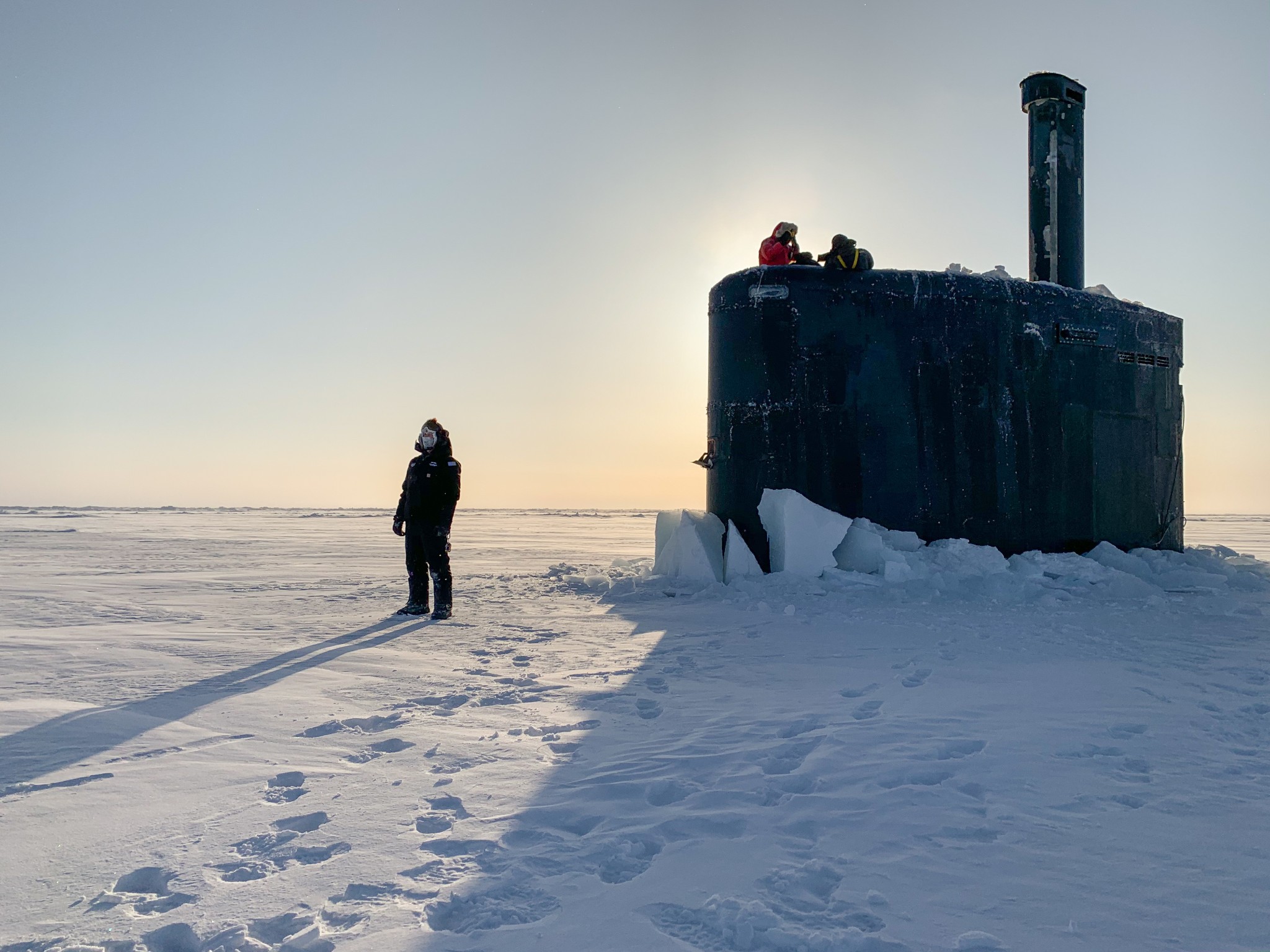 U.S. Navy photo by Mass Communication Specialist 1st Class Michael B. Zingaro/Re
U.S. Navy photo by Mass Communication Specialist 1st Class Michael B. Zingaro/Re
Why the U.S. and Russia Should Make Arctic Cooperation a Priority
American and Russian Interests in the Arctic
The United States has increased attention to the Arctic in recent years, and the incoming Biden administration offers the opportunity to increase cooperation and build trust between the U.S. and Russia, especially given increasing international interest in the region.
Out of all eight countries with land residing in the Arctic, Russia occupies the most area, accounting for 53 percent of the Arctic Ocean coastline. The Arctic has long been important to Moscow; the natural resources and shipping routes make the Arctic significant economically. It also serves as a region for Russia to project power by conducting military exercises, building new icebreakers, and hosting its nuclear submarines.
Arctic sea ice decline caused by climate change will make accessible previously unexplored gas and oil reserves and open more shipping routes, increasing international focus on the region.
Arctic Cooperation
Many issues plague the growing exploration and activities occurring in the Arctic, and finding new opportunities for further cooperation is essential. The United States and Russia should lead the charge and cooperate on three key issues:
- Search and rescue coordination
- Environmental protection
- Oil spill prevention and response
Search and Rescue Coordination
The melting of Arctic sea ice has led to an increase in shipping operations, highlighting the need for increased and improved search and rescue coordination. The U.S. faces particular difficulties in the distance between Coast Guard bases and the Arctic, along with a lack of infrastructure and communications networks. The Arctic’s severe weather and harsh climate also complicates search and rescue efforts.
The 2011 Arctic Council Agreement on search and rescue (SAR) calls for cooperation but does not require it, nor provide a comprehensive plan to achieving it. The United States should seek to achieve further collaboration with Russia on SAR coordination through enhanced information sharing between all entities involved in SAR operations. They should also create a working group to discuss joint training exercises for SAR, and for establishing annual discussions. Infrastructure development in the Arctic could also help SAR coordination, and the U.S. and Russia should work together with all other Arctic nations to increase investment in infrastructure.
Environmental Protection
Environmental protection should be at the forefront of any increasing exploration and other activities in the Arctic. Arctic sea ice is already melting at a rate faster than expected, and ensuring it does not melt any faster is not only imperative to the health of Arctic ecosystems, but also directly consequential for its impact on sea level rise that affects the world. Furthermore, the faster the Arctic becomes more accessible environmentally and economically, the more states will jump to increase their presence in the region. In order to prevent conflict and ensure risk reduction, environmental protection should be seen as an environmental, economic, and security issue.
Oil Spill Prevention and Response
Melting sea ice means more opportunities for ships to explore offshore oil and gas drilling in the Arctic. Due to the region’s remoteness and severe weather, attention to oil spill prevention and response is required. In the past, concern about oil exploration in the Arctic has led U.S. Presidents and Congress to institute moratoriums on oil activities in certain parts of the Arctic. Yet increasing interest in exploring new oil reserves along with the need to recover economically from the Covid-19 pandemic suggest that oil activities will continue to increase in the Arctic.
The United States signed an agreement with Russia in 1989 on oil spills in the Arctic, but this framework needs to be updated to reflect the current environmental state. The United States should collaborate with Russia and the other Arctic states on oil spill prevention and response due to the region’s remoteness and lack of infrastructure. By creating specific training and response mechanisms between the United States and Russia, they can increase response time to a potential oil spill.
Conclusion
Due to the growing interest in the Arctic from many countries, increasing activity and exploration necessitates greater cooperation on potential issues. Due to each of their locations and strategic interests, the United States and Russia should work together to ensure that they can build trust and increase cooperation amongst increasing economic and security interests in the region. While the U.S. should also reach out to and work with the other Arctic nations, Russia’s geographic access is a key factor, and identifying areas of cooperation for both countries should be a priority.





